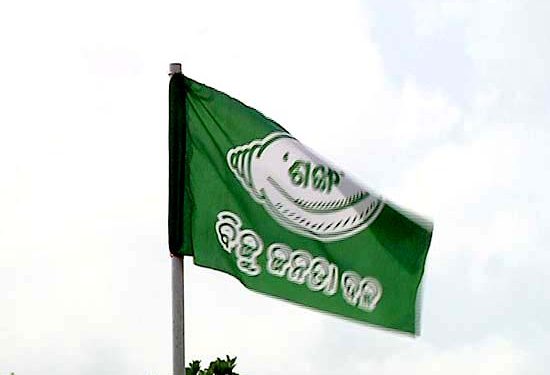Bhubaneswar: The Biju Janata Dal Monday announced that it would approach the Orissa High Court regarding vote discrepancy in the 2024 Assembly and Lok Sabha polls, as the Election Commission of India has “failed” to give any satisfactory reply to the regional outfit on the issue.
This was announced by BJD spokesperson Amar Patnaik, MLA Dhruba Charan Sahoo and former MP, Sarmistha Sethi at a press conference here.
“Around eight months ago, BJD had submitted fact-based evidence to the ECI regarding the vote discrepancy observed in the last elections and sought a reply, but a satisfactory reply has not been received yet. Therefore, the Biju Janata Dal has decided to approach the High Court regarding this matter,” Patnaik told reporters here.
However, the regional outfit maintained a safe distance from the Congress and other INDIA bloc’s “vote chori” agitation.
“Congress leader Rahul Gandhi has recently raised questions about the transparency of the elections, following which the party’s state unit is also making it an issue now. However, the BJD had raised this issue long before that. Rahul Gandhi also reiterated the audit system demanded by the BJD earlier,” Patnaik said.
Stating that the ECI has not been able to remove the doubts from the minds of the people on the transparency and election results, Patnaik said, “That is why the Biju Janata Dal is going to the High Court.” He, however, made it clear that the BJD’s move has nothing to do with the Congress allegation of “Vote Chori.”
The BJD spokesperson said that after studying the data given by the ECI after the end of the last elections, many discrepancies were observed. As a responsible political party, the BJD sought clarification from the ECI regarding this discrepancy.
“We had raised mostly three points. The first was that in all parliamentary constituencies of the state, the number of votes counted was more than the number of votes cast in the EVMs. The second was that there was a significant difference between the total number of votes cast in the parliamentary constituencies and the total number of votes cast in the assembly constituencies. The polling was held simultaneously,” Patnaik said.
The third was that after the end of the election time at 5 pm on voting days, the number of votes cast varied from about 7 per cent to 30 per cent. In fifty per cent of the assembly seats, this difference ranged from 15 to 30 per cent, the BJD spokesperson claimed.
He said the BJD December 19, 2024, lodged a complaint with the ECI in this regard, and a response was requested. Apart from this, in order to make the election process more transparent, an audit of the entire process, starting from the preparation of the voter list to the completion of the counting of votes, was also demanded.
“Such an audit system of the election process is available in all developed countries. Similarly, it was requested that the VVPAT system be implemented for all votes, not just five per cent,” he said, adding that as per the rules, Form 17C should be issued by the ECI after the election, but the Election Commission has not issued it.
Since cases have been filed in the high court regarding the election results in some constituencies, the Election Commission’s answer that Form 17C cannot be issued is “not satisfactory”, he said
Sharmistha Sethi, who lost elections from the Jajpur Lok Sabha seat in 2024, said that the day after the election results were declared, she applied to the Election Commission for Form 17C. “As this was not provided to me, I wrote a letter to the Election Commission of India, but I did not get a satisfactory reply. As a result, I was forced to approach the High Court. Now it is pending,” Sethi said.






































